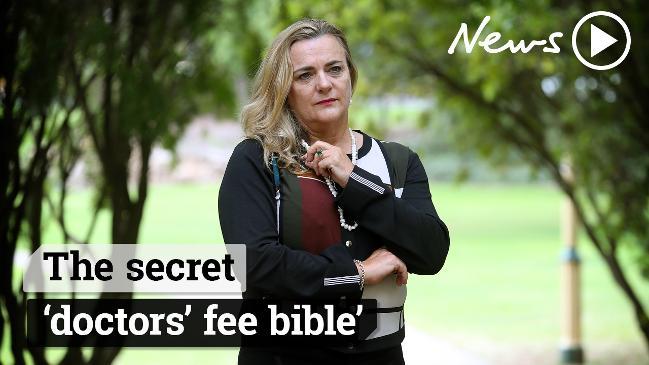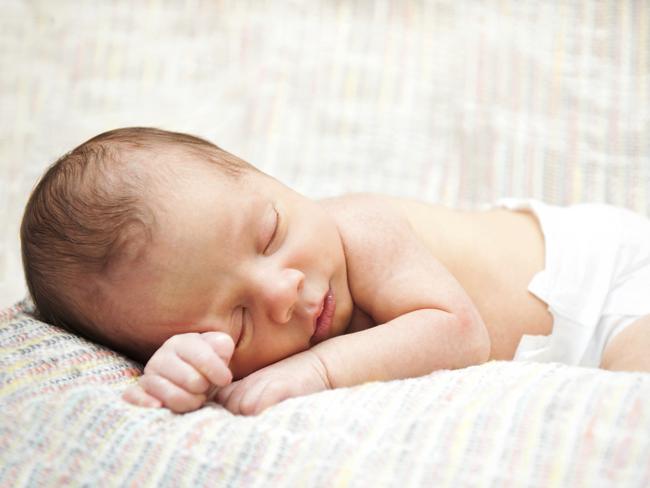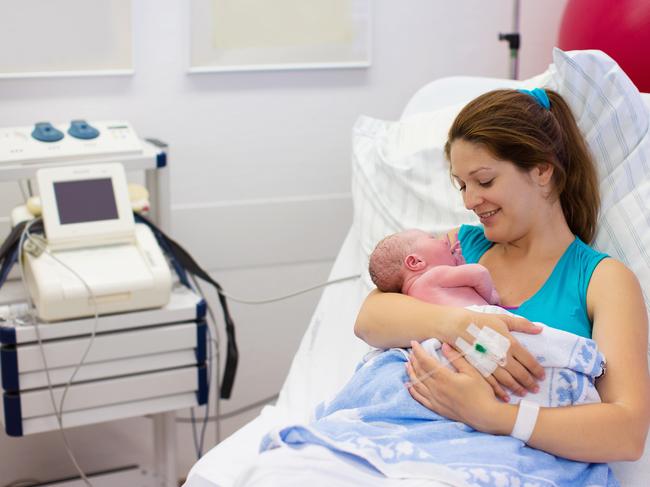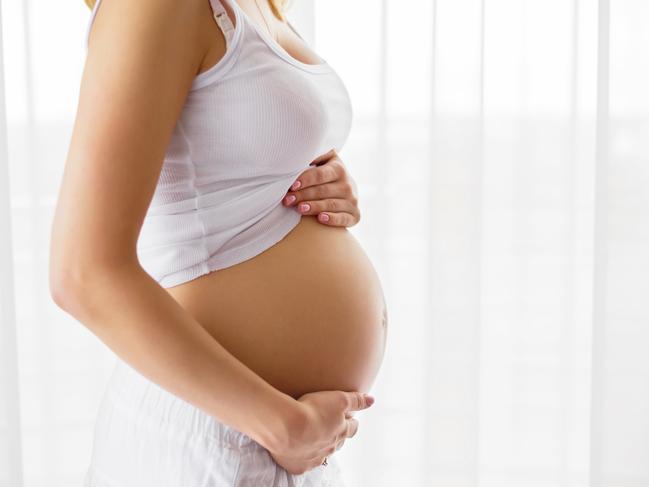Half of all Australian babies born privately have complex births
HALF the babies delivered privately in Australia are being billed at a rate that has left consumer health groups astounded and questioning whether doctors are price gouging.

Parenting
Don't miss out on the headlines from Parenting. Followed categories will be added to My News.
EXCLUSIVE
Half the babies delivered privately are being billed as complex births, a rate that has left consumer health groups astounded and questioning whether doctors are price gouging.
Medicare data shows that of the 72,852 private births billed to Medicare in the 12 months between July 2017 and June 2018, 35,350 or 48 per cent were billed as complex deliveries.
Doctors who claim a complex birth are able to bill patients almost $1,000 more than when they attend a normal birth.
It comes as mothers groups push for the government to introduce a bundled payment system for maternity care to remove the bill shock that can leave parents more than $10,000 out of pocket for a private birth.
Medicare pays a higher fee for complex births either natural or by caesarean section if the baby is breech, underweight or the mother had high blood pressure, diabetes or other health problems.
MORE: The Aussies paying more for seeing a doctor
MORE: The secret fee list your doctor doesn’t want you to see

The Maternity Consumer Network director Alecia Staines says the high rate of billing for “complex” pregnancies in the private sector is “insane”.
“There is no way half of us are high risk,” she said.
The Medicare payment for a normal delivery is $693 compared to $1,629 for a complicated one and she wonders whether that is what is really behind the billing practice.
A recent report by the federal government’s Independent Hospital Pricing Authority report found even in public hospitals there may be too much medical intervention in the birth process.
“There is significant scope for savings to public hospitals from clinically warranted reductions in the rate of interventions during birth,” it said.
Ms Staines a teacher and mother of four from the Sunshine Coast has also raised concerns about the still growing rate of caesarean deliveries in Australia which is among the highest in the world.
The latest government figures shows in the last decade normal vaginal births have fallen by 5 percentage points (from 58% in 2006 to 53% in 2016) whereas the caesarean rate has increased by 3 percentage points (from 31% in 2006 to 34% in 2016).

Recent NSW data shows more than four in ten babies born to privately insured women involved a caesarean section, many of these caesareans are elective.
Royal Australian and New Zealand College of Obstetricians and Gynaecologists spokesman Dr Will Milford said one factor behind the high rates of complex births could be that women who had a private birth were usually older and were therefore at risk of more complications.
Official data shows almost half of all women are overweight or obese before they get pregnant, more than one in three have gestational hypertension and one in 12 have gestational diabetes.
These are factors likely to make their pregnancies more complex.
A recent government review of Medicare benefits resulted in the tightening of the criteria that applied before doctors could claim a complicated delivery from November last year, Dr Milford said.
However, a review of Medicare data shows, if anything, billing for complicated deliveries actually increased after those changes.
Between November 2016 and June 2017 46.7 per cent of privately births were billed as complicated compared to 48.9 per cent between November 2017 and June 2018.

Dr Milford said the new guidelines also added conditions such as mental health disorders as criteria to be billed for a complex delivery and this could also be an explanation for the increase in billing rates.
In this case the delivery itself might not be complicated but the patient’s overall health might be, he said.
High out of pocket fees charged by obstetricians and improved facilities in public hospitals have seen many women abandon the idea of giving birth in a private hospital.
The proportion of women giving birth in private hospitals has dropped from 28.2 per cent in 2006-07 to 24.2 per cent in 2015-16.
Ms Staines says it is time for the federal government to introduce a bundled payment system for maternity care similar to that in New Zealand, the UK and Canada.
Bundled pricing would see Medicare pay a single price for a full package of maternity care over the whole pregnancy from ten weeks gestation to six weeks after the birth.
Such a scheme has been operating in New Zealand for around 20 years where there is a lower rate of growth in caesareans, forceps deliveries, inductions and epidurals and higher levels of patient satisfaction linked to the midwife-led contracting model.
The Government’s Independent Hospital Pricing Authority investigated such a payment system and recommended it last year however the inability to track an individual patient across multiple parts of the system means it has not been adopted.
Originally published as Half of all Australian babies born privately have complex births


